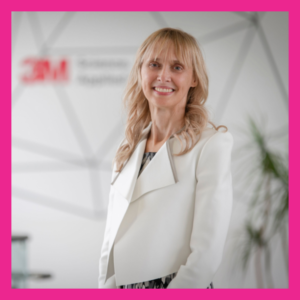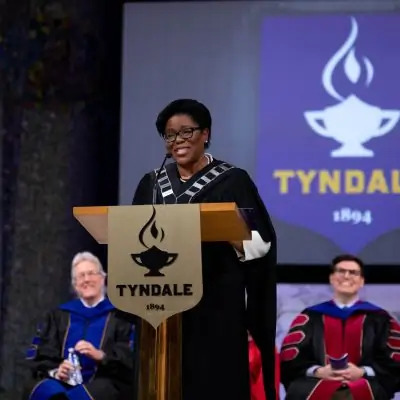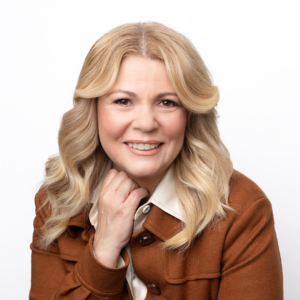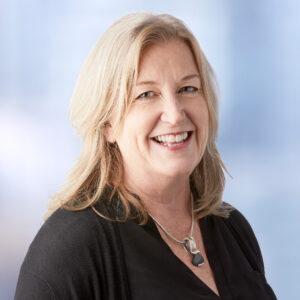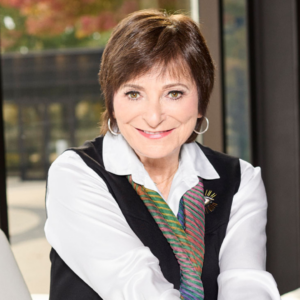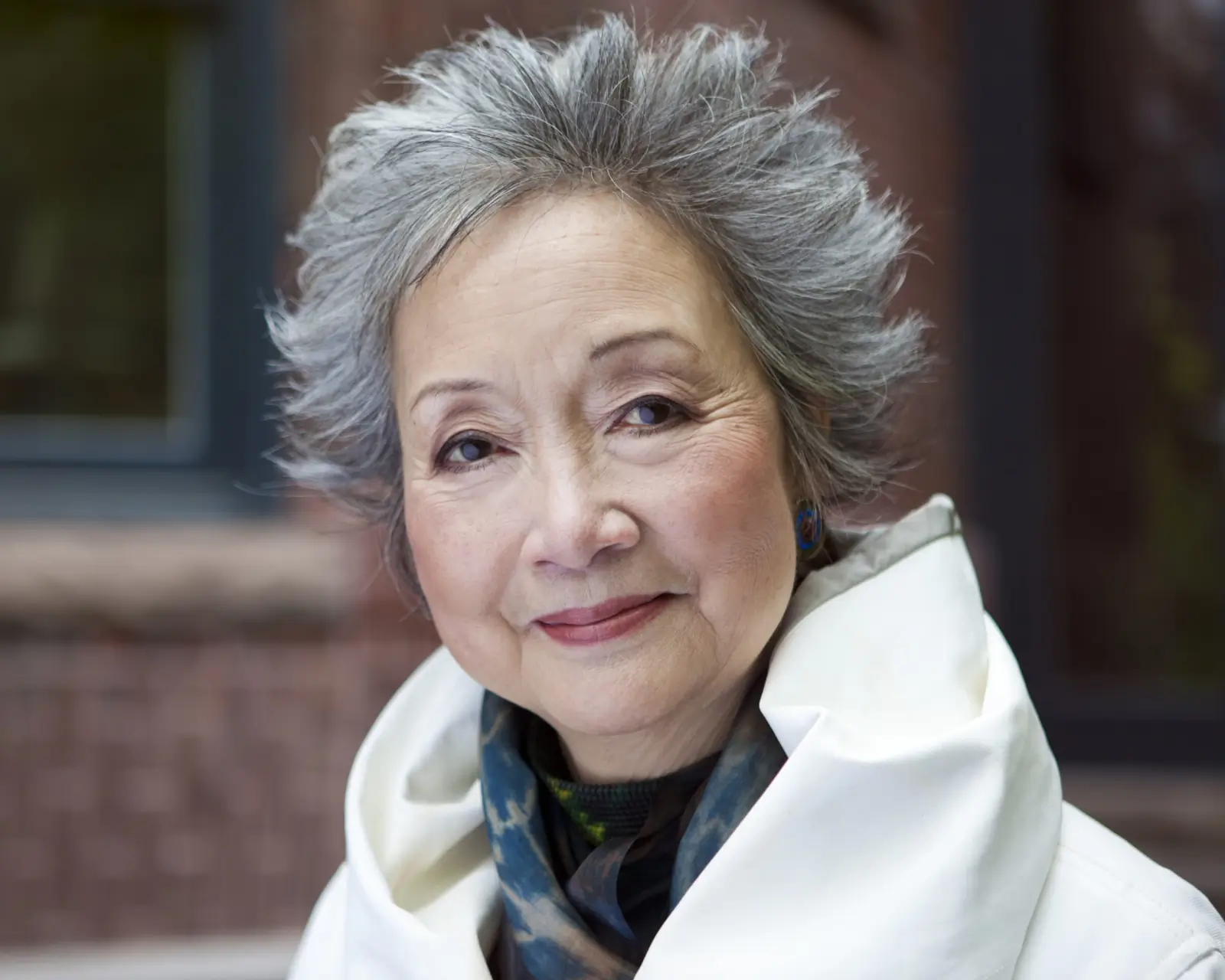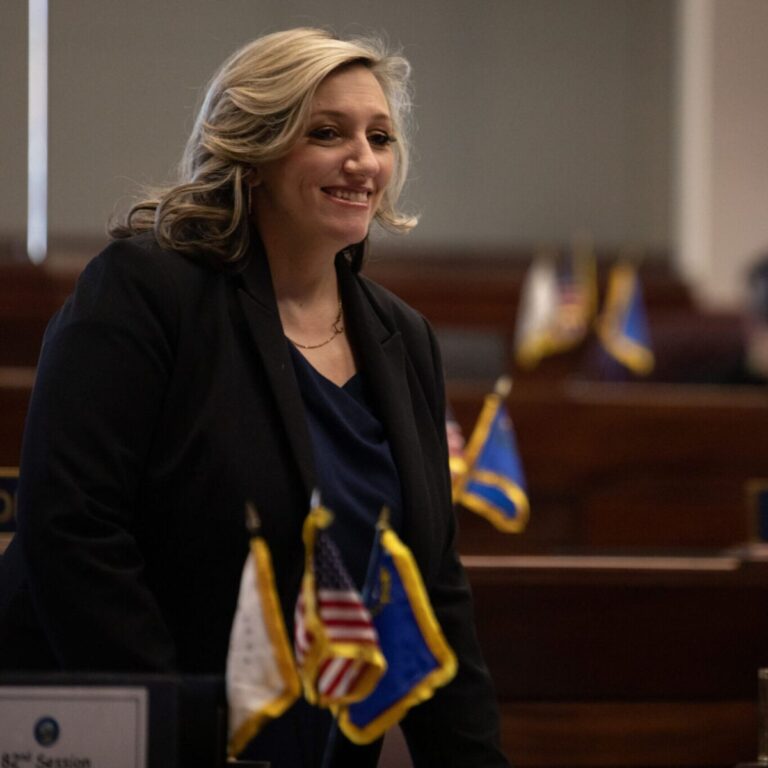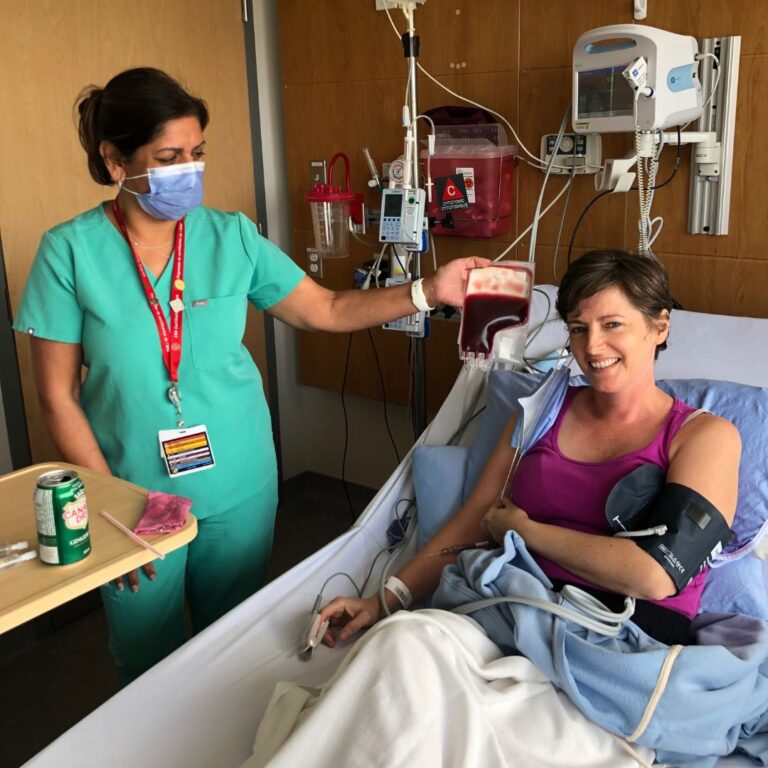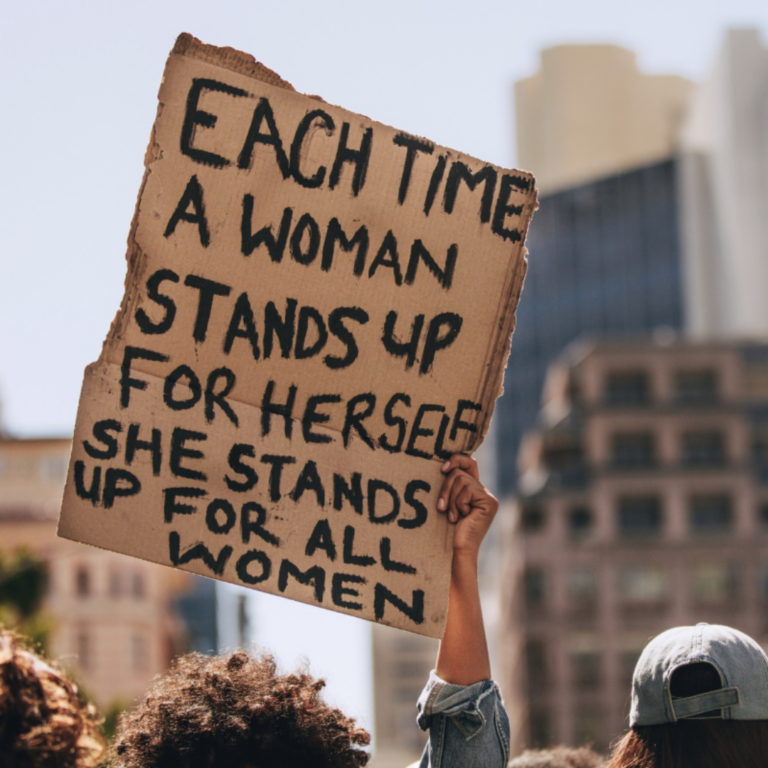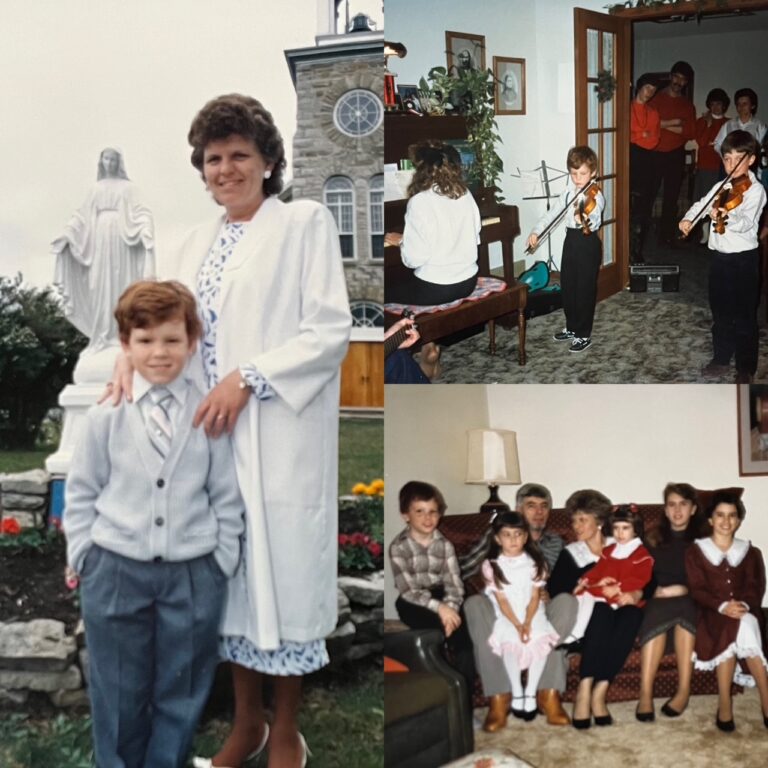Vinita Savani, Senior Vice President of Personal Lending and Auto Finance at RBC
In this episode, Jen and Catherine chat with Vinita Savani, who has moved her way up the ranks at RBC since starting with Canada’s largest bank in 1997.
Not only has Vinita stayed with RBC ever since, but she’s now their Senior Vice President of Personal Lending and Auto Finance. Along the way, she’s learned how to use her voice, mentor others, and be mentored. She’s established boundaries that have allowed her to become a truly successful professional and a dedicated mom and spouse.
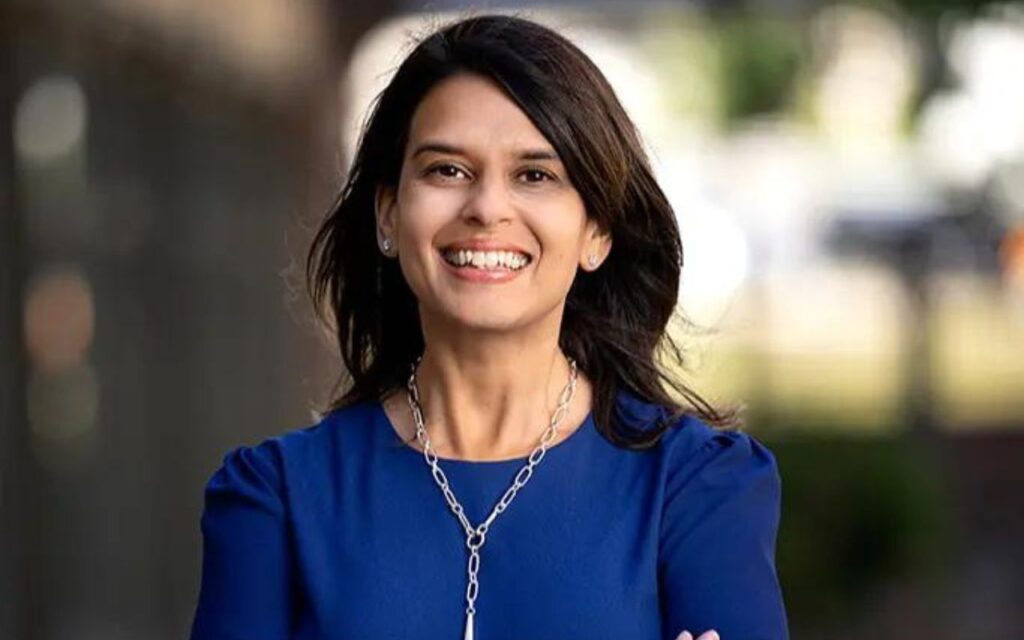
Jennifer Stewart: Vinita, I have to tell you that when we saw your job title, we thought, how cool is this? Not only are you a Senior Vice President with one of the country’s biggest banks, but you are responsible for, amongst other things, automotive finance. So you’re a girl boss in a totally non-traditional field. How did you end up with this role?
Vinita Savani: I’ve been with RBC for over 25 years and have had the privilege of trying a variety of different roles. If I were to stop and guess where my career would naturally take me, I would have been the last person to feel like it was auto finance.
I’ve had the opportunity to try so many different things throughout my career, to take on challenges, and to be curious, so when this role came up, I saw it as a great learning opportunity and an opportunity to bring a lot of those prior experiences into this role. So, I’m super excited about the path forward.
Jennifer Stewart: Speaking of your career and the success that you’ve had to date, you talk about growing up in a fairly traditional environment, one where it was customary to allow others to speak first. What kind of impact did this environment have on you as a young woman who now uses her voice in her role very frequently?
Vinita Savani: That’s a really interesting question that I probably spent a disproportionate amount of time thinking about. I won’t begin with how that journey started, but how it took me backwards to be thoughtful about that over time.
If I think about various phases in my career, I often got feedback that I didn’t speak up enough and that my voice wasn’t heard. There was one point, probably 10 years ago, where I felt like I was at this point of inflection where a part of me felt like saying, “Well, it’s just me, and that’s who I am. I’m probably more of an introvert than anything else.” But I knew that I had to have a better answer if I wanted to progress in the organization.
That’s when I started looking deeply into how I grew up and how I could actually be my own force of change. One of the things that is very common among women of Asian heritage is our tradition of hierarchy. It often translates into respect for elders, which is very common in many cultures, as well as respect for the family tree. What I realized was that this was inevitably embedded in my style. I would always wait to be asked to speak; I wouldn’t be the first to speak. And I think over time, I got feedback that, in fact, what I was leaving was an impression that I didn’t care, that I wasn’t interested. And until I got that direct feedback, it was really hard for me to process what needed to change.
But it also helped me think through how that culture of hierarchy actually manifested in some positive characteristics. We always try to develop the feedback that’s been given to us and take that in a negative light. But on positive reflection, it really helped me be a better listener. It helped me pause and observe and also made me think more about how I spoke, not necessarily only what I was saying.
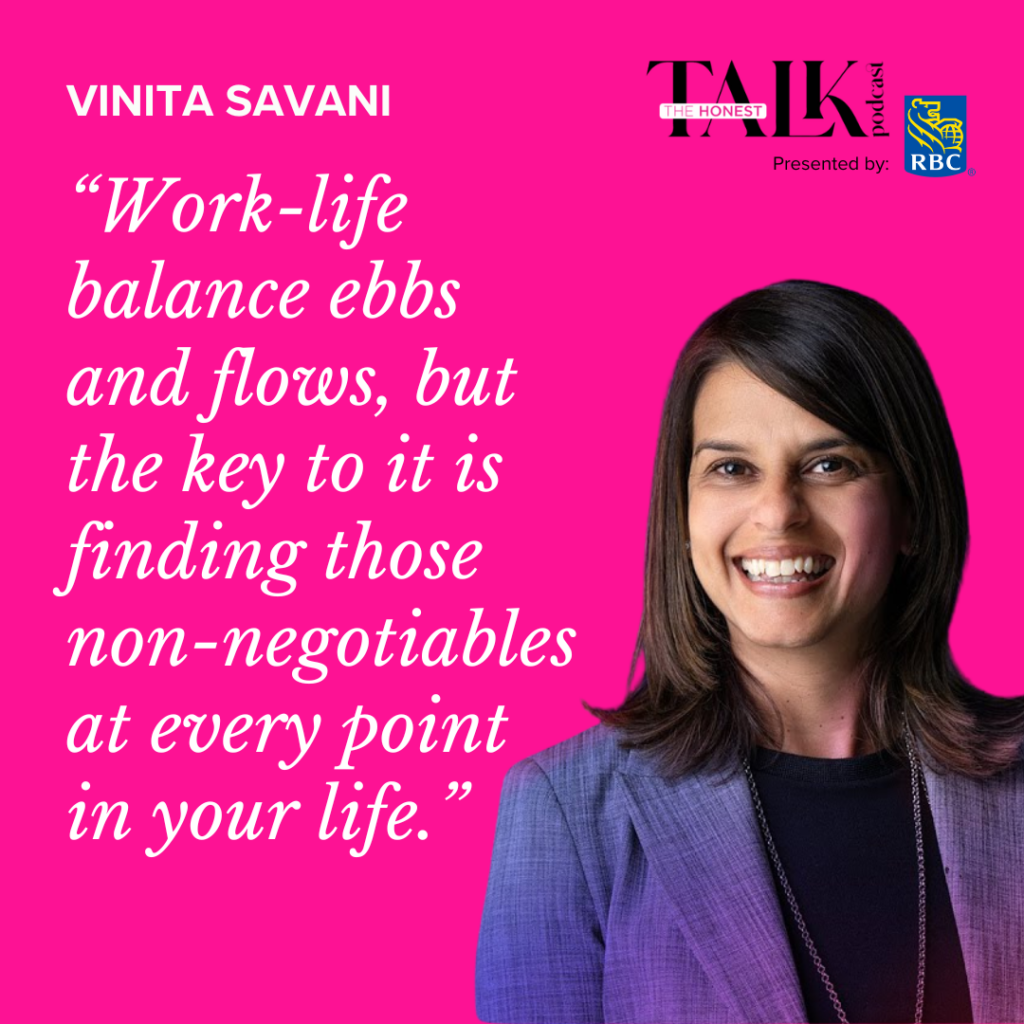
Catherine Clark: Can you talk to us a little bit about how you learned to be confident in speaking up?
Vinita Savani: Maybe I’ll start by saying it’s still part of my development plan. And, you know, I laugh a little bit because I talked to a lot of senior women, and it’s great to see that you’re not alone. If I think about how I built that confidence, I think I did a couple of things.
I learned to be well-prepared for meetings and discussions. Sometimes, that sounds really basic, but we’re also busy, running in 10 different directions, and we don’t often take a few minutes to prepare for what we’re stepping into. So, in the early days, when I was really trying to make sure that my voice was heard, I made a proactive effort to make sure that I was being prepared.
I also looked outside and beyond the organization. I wanted to explore how I could find that voice in different environments. Very early in my career, I took on a role on a board in a not-for-profit organization. It enabled me to participate as a leader amongst other leaders in the community and learn how to find a voice in a place that wasn’t intimidating or where I didn’t feel like I was being judged because I wasn’t surrounded by co-workers. That was really critical in building competence. That’s often a piece of advice I share with people I mentor: look for opportunities outside of your normal day-to-day life to help you build that confidence.
Jennifer Stewart: Vinita, you’re a mom, and you’ve got a demanding career — how do you find time to fill your cup? And what does that look like?
Vinita Savani: I have a big smile because I’m still trying to figure that out. I’m at an interesting point in my life. I’ve got two boys, and they will be at university shortly. So, I’m contemplating what to do with some of my spare time because so much of my time has been about them in a very positive way.
I would say that I probably haven’t really invested time in myself until the past few years, and that was probably one of the positive things that came out of the pandemic. I try to take time to enjoy nature, be inside, go for long walks, and go for runs, and I try to do it in a way that I’m completely disconnected.
Catherine Clark: You talk about the fact that you are a mom to boys. How are you raising them? What are you trying to instill in them, both taking things from your childhood and possibly avoiding some things from your childhood so that they grow up to be the kind of men you would like to set free into the world?
Vinita Savani: I love that question. There are elements we touched on about respect, especially when you think about respect for your elders and the people around you … that’s one of the character traits we’ve tried to embed in them. Along these lines, I think it is important to remember how big the world is around them. I think they are so consumed by social media that it often worries me that young people tend to focus so much on themselves. They forget that they are a part of something much bigger.
We encourage them to challenge themselves, push themselves to their potential, and think about not only what they’re doing today but also what they’ve done in the past and what they could do in the future. That extends beyond education and work to thinking about what they want to do and how they want to explore life.
Jennifer Stewart: What’s one time that you can reflect on where you pushed yourself and were really happy with the outcome because you achieved something you weren’t confident you could achieve?
Vinita Savani: About three years ago, in the middle of the pandemic, I made a decision to take on a role as a regional president of Atlantic Canada, and I really had to push myself because, first of all, it was during the pandemic. Secondly, it wasn’t necessarily my strong suit. While I had experience being in a client-facing role, it wasn’t to the extent that you may believe it would be necessary to step into that role.
So there was the work piece, but there was a personal piece … we had teenagers. And we were really challenging them to think differently. They wouldn’t have moved five metres up the street if we had asked them five years ago. So we got lucky. It was a moment of pushing myself and the family to try something different. And it was an incredible experience. It was not without learning discomfort and pain at points in time. But we proved to ourselves that if you’re willing to be adaptable, take on a little bit of risk, and be open to change, what you learn in hindsight is incredible.

